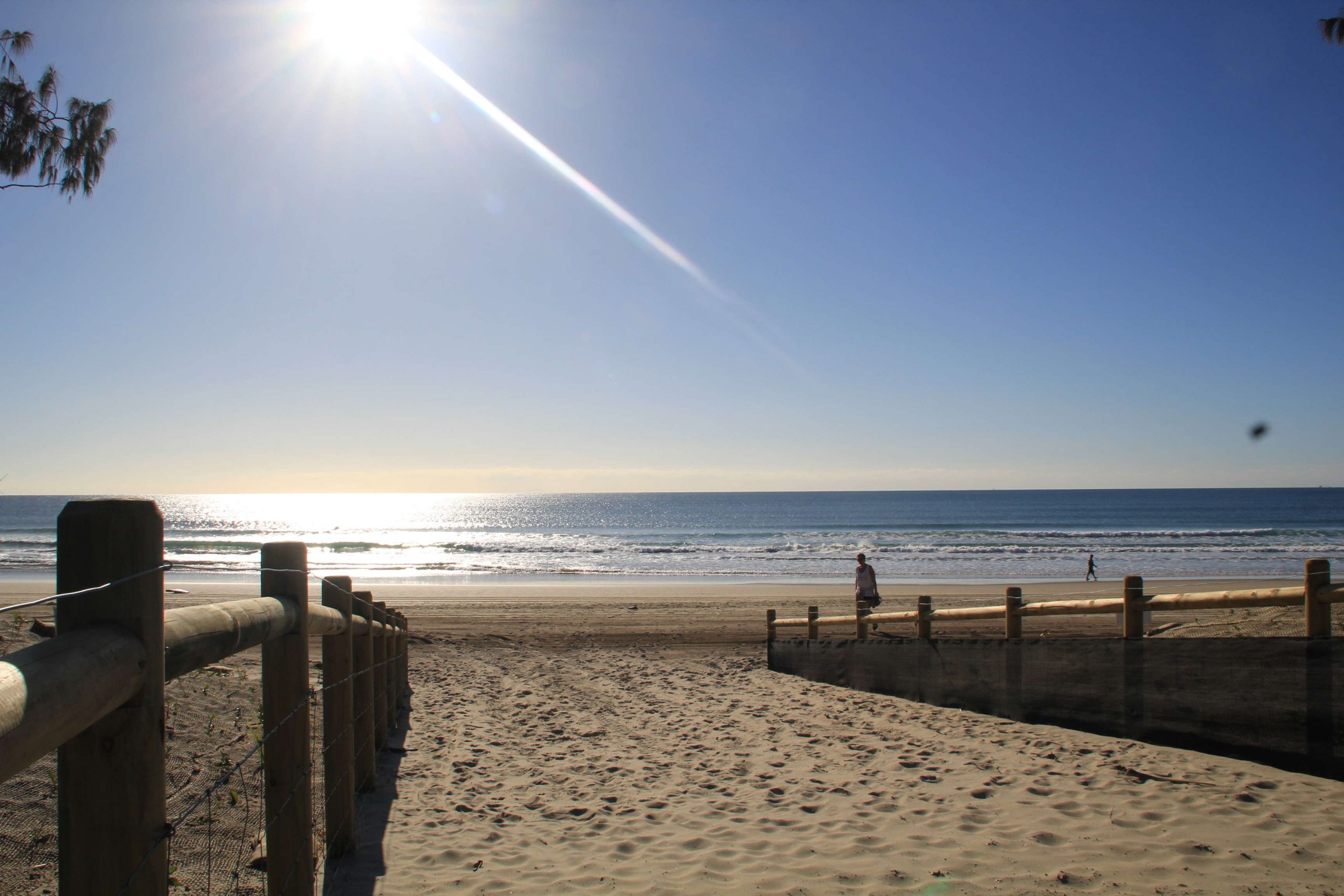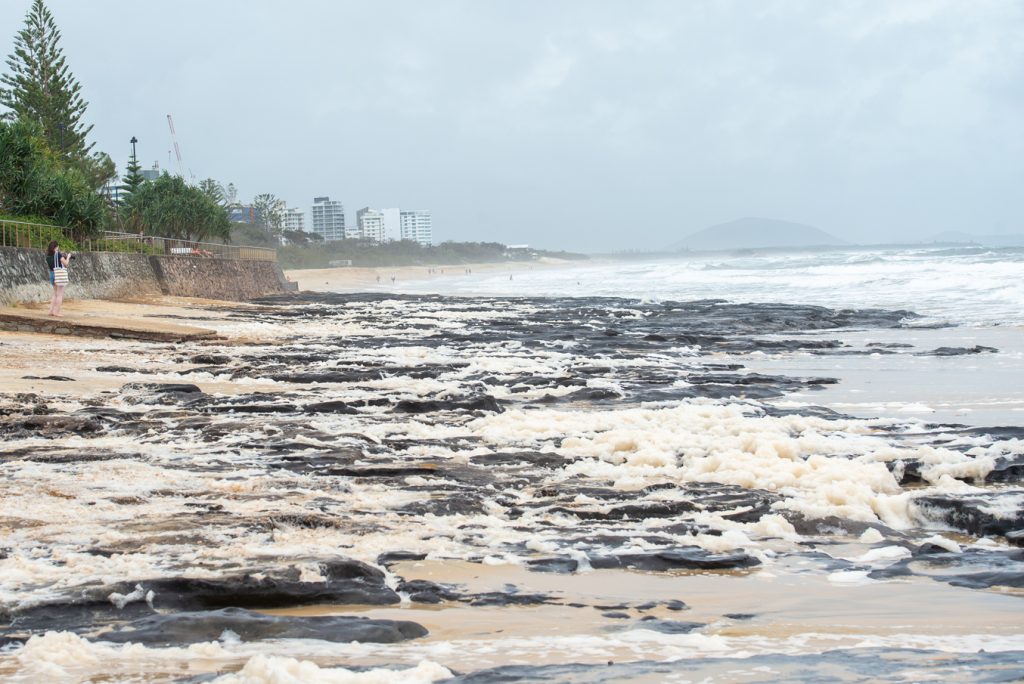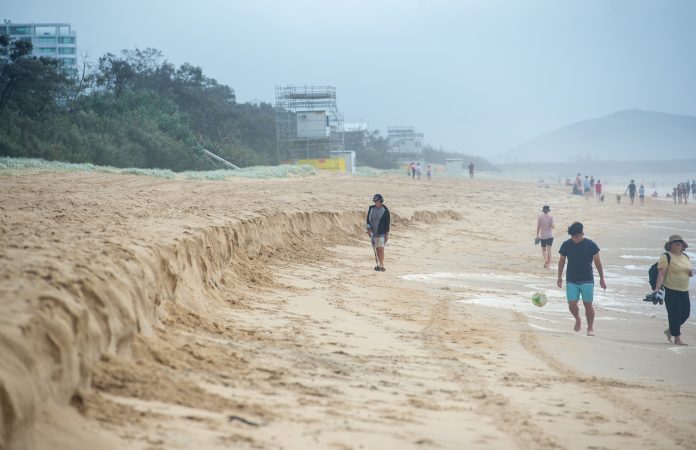A technique new to the Sunshine Coast will be used to address erosion at one of the region’s most popular beaches.
Council has announced it will trial an innovative method of sand nourishment at Maroochydore to protect the popular area from the effects of severe weather.
The technique, called nearshore nourishment, has not been used in the region before and it involves importing sand from outside the area and placing it in the water, about 300m off the beach.
Waves, currents and tides will then deposit the sand onto our beaches providing an additional buffer to future storms and coastal erosion.
The traditional method is to beef up the beach itself, rather than drop sand offshore.
Sunshine Coast Council’s Environment Portfolio Councillor Peter Cox said the Coastal Hazard Adaptation Strategy guided Council’s work to manage our region’s beaches from the risk of future coastal erosion.
“A lot of work has gone on behind the scenes over several years to inform the long-term management of our coastline,” Cr Cox said.
“We are using coastal data captured through wave buoys, beach surveys, hydrographic surveys, ecological monitoring, and wind data to shape the project.
“This is in addition to studies that have shown that there is a limited supply of sand on the Sunshine Coast.

“Maroochydore Beach has been subject to significant erosion events over the years and adding new sand from outside the region, such as the Spitfire Channel in Moreton Bay, will help nourish the area and protect from further erosion.
“The trial will supplement the existing sand re-nourishment program that involves collecting sand from the Maroochy River and pumping it onto the beach.
“Trialling the new technique will assist us to make evidence-based decisions about the future management of our coastline.
“The trial will provide critical evidence to support our understanding of how this technique works here on the Sunshine Coast.”
A dredge will collect sand from the Spitfire Channel, in Moreton Bay, and transport it to Maroochydore Beach for release, potentially using two methods.
One method may include dropping the sand from the bottom of the barge and the other will spray the sand in a rainbow shape into the water.
The results of both methods will be compared.
Surf amenity will be a consideration throughout the trial.
Cr Cox said although this technique had not been used on the Sunshine Coast, it was a well-established method and proven successful for other government bodies on the Australian east coast.
“We expect the trial will show that additional sand placed in the nearshore area, close to the sand bar, will naturally migrate to the shoreline over time,” he said.
“This will confirm the effectiveness of this well-established methodology to enable us to use it in the future if we need to.”

Help keep independent and fair Sunshine Coast news and opinion coming by subscribing to our free daily news feed. All it requires is your name and email. See SUBSCRIBE at the top of this article.
Council has established a technical advisory group to act on behalf of the community and contribute to the project.
Members include Councillors, Queensland Government representatives, Sunshine Coast Council, Surf Lifesaving Queensland, Queensland Police Service and expert engineering consultants.
All necessary environmental approvals are being progressed for the trial to be conducted.
Council will keep the community updated as investigations continue. Community engagement opportunities are set to roll out either later this year or early in 2022 as the project details are finalised.
The planning, approvals, placement and monitoring will cost approximately $600,000.
For answers to frequently asked questions about the trial, please visit Council’s website.





